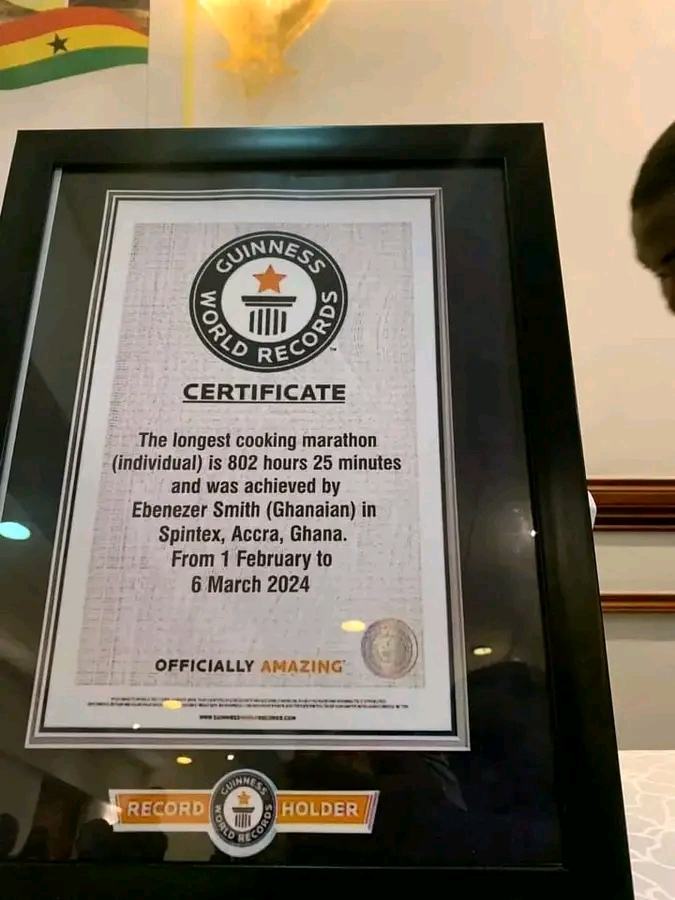
Guinness World Records (GWR) has officially stated that, “if Chef Smith’s claims of being the new record holder is false, and the certificate he presented is not genuine.”
It raises serious concerns about the validity of his claim. GWR’s statement suggests that Chef Smith either misrepresented his achievement or was misled by someone providing false documentation.
GWR has a stringent verification process to ensure that all record claims are legitimate. This process involves meticulous documentation, evidence, and often, the presence of official adjudicators. Any deviation from this process typically invalidates a claim.
Presenting a false claim or a counterfeit certificate can damage Chef Smith’s reputation, especially if he intended to use the supposed achievement to promote his career or business. It can also undermine the trust of his audience, customers, and sponsors.
If Chef Smith knowingly submitted a false claim, he could face legal repercussions and ethical scrutiny. Misrepresentation of such a nature can be considered fraudulent, which may lead to legal consequences and a loss of professional credibility.
Chef Smith should respond to these allegations transparently. If he was misled by another party, he should clarify the situation and take steps to correct the misinformation. If he intentionally misrepresented his achievement, he should issue a public apology and make amends for any potential harm caused by his false claim.
For anyone attempting to set or break a world record, it is crucial to follow GWR’s guidelines and ensure all documentation and evidence are authentic and accurately submitted. Transparency and adherence to official procedures are key to maintaining credibility and achieving recognized success.
If Chef Smith wishes to maintain his reputation, addressing this issue openly and taking corrective actions will be essential.
Check below





